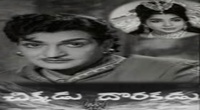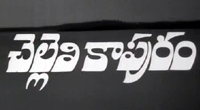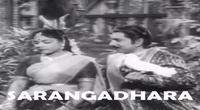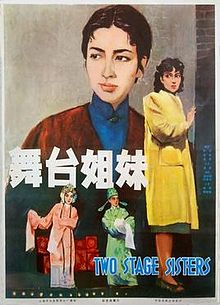Two Stage Sisters is a 1964 Chinese drama film produced by Shanghai Tianma Film Studio and directed by Xie Jin, starring Xie Fang and Cao Yindi. Made just before the Cultural Revolution, it tells the story of two female Shaoxing opera practitioners from the same troupe who end up taking very different paths in their lives. The film begins in 1935 and ends in 1950, just after the founding of New China.
| Two Stage Sisters | |
|---|---|
| Traditional | ???? |
| Simplified | ???? |
| Mandarin | W?tái Ji?mèi |
| Directed by | Xie Jin |
| Produced by | Ding Li |
| Written by | Lin Gu Xu Jin Xie Jin |
| Starring | Xie Fang Cao Yindi Shangguan Yunzhu |
| Music by | Huang Zhun |
| Cinematography | Zhou Daming Chen Zhenxiang |
| Edited by | Zhang Liqun |
Release date |
|
Running time | 114 minutes |
| Country | |
| Language | Mandarin Wu Chinese |
Unlike most Chinese films of its period, which were adaptations of accepted and well-known dramatic and literary works, it was made from an original screenplay.
Screenplay
In 1935 a runaway tongyangxi, Zhu Chunhua, takes refuge at an itinerant Yue Opera troupe performing at a Shaoxing village. The head of the troupe, A’Xin, intends to send the girl away, but Yue Opera teacher Xing, seeing her potential, takes Chunhua in as a disciple and trains her. Chunhua signs a deal with the troupe and becomes the performing partner (in a dan role) to the teacher’s daughter Yuehong, the latter performing as a xiaosheng.
A rich provincial landlord Ni invites Chunhua and Yuehong to sing at his house privately after the troupe reaches his province. He takes an interest in Yuehong; however, Yuehong and her father spurn his interest and as a result, Kuomintang cops forcibly seize Yuehong one day during a performance. Chunhua is also arrested and tied to a pillar for days as “public humiliation”. The two are released after Xing and A’Xin send bribes to the KMT cops.
During the Second Sino-Japanese War, Yuehong, Chunhua and the troupe go through hard times. In 1941, Teacher Xing dies of an illness, and troupe master A’Xin sells his two best performers to Tang, a Shanghai opera theater manager, on a three-year contract. Yuehong and Chunhua, now sworn sisters, rapidly become Tang’s biggest stars, causing Tang to forsake his aging star and former lover, Shang Shuihua.
Three years elapse. Yuehong and Chunhua are renowned in the city. Chunhua remains down-to-earth but Yuehong grows steadily more materialistic. Sick of having to sing opera for life, Yuehong rashly agrees to Tang's proposal, but Chunhua distrusts Tang and refuses to support Yuehong’s marriage plans. Unbeknownst to Yuehong, Tang already has a wife, and is keeping her as a mistress.
One day faded ex-star Shang commits suicide by hanging herself backstage. Chunhua is incensed that Tang, her former lover, attempts to shirk his responsibilities by claiming he has nothing to do with her death. Through this episode, Chunhua gets to know a "radical" lady journalist Jiang, who advises her to become "progressive" to teach other Chinese to distinguish between truth and falsehood. She starts performing “progressive” operas like an adaptation of Lu Xun’s ‘’The New Year Sacrifice’’.
Chunhua’s works alert the KMT regime who gives Tang the task to ruin Chunhua's reputation. They get A’Xin to file a lawsuit against Chunhua and Manager Tang coerces Yuehong to testify against Chunhua, but at the crucial moment in the courtroom, Yuehong faints.
The film ends in 1950, one year after the establishment of the People’s Republic of China. Chunhua prepares to perform The White-Haired Girl for country folks at Zhejiang. Tang has run off to Taiwan with the KMT cohort and Yuehong is quietly abandoned at Shaoxing province. Although Yuehong witnesses Chunhua’s drama, she is too ashamed to face her sworn sister again. Near a quay later the day, however, the sisters manage a tearful reunion. On the boat the following day, Yuehong vows to learn her lesson and walk the "correct" path while Chunhua dedicates her entire life to performing revolutionary operas.
- Xie Fang as Zhu Chunhua (???), the main protagonist, a Yue Opera performer. Originally a tongyangxi, she is adopted and later excelled in the dan role. She becomes a leftist and performs revolutionary operas.
- Cao Yindi as Xing Yuehong (???), daughter of Teacher Xing. She plays the xiaosheng (male) parts. Enticed by Manager Tang to forsake her art, but is abused frequently until reunited with sworn sister, Chunhua.
- Feng Qi as Teacher Xing (???), father of Yuehong, a Yue Opera teacher.
- Gao Aisheng as Jiang Bo (??), a "progressive" leftist lady reporter
- Shen Fengjuan as Xiaoxiang (??), a former troupe performer who plays supporting roles. Later reunited with Chunhua.
- Xu Caigen as Jinshui (??), Xiaoxiang's husband and former troupe member.
- Shangguan Yunzhu as Shang Shuihua (???), an aging former star in the Shanghai opera scene, a former mistress of Manager Tang who was jilted. She later hangs herself.
- Ma Ji as Qian Dakui (???), a Yue performer at the Shanghai theater
- Luo Jingyi as Yu Guiqing (???), a Yue performer at the Shanghai theater
- Wu Bofang as Little Chunhua (???), a village tongyangxi who is Chunhua's namesake.
- Li Wei as Manager Tang (???), the unscrupulous stage manager and theater owner who keeps Shang and Yuehong as his mistresses.
- Deng Nan as A'xin the “Monk” (????), the former troupe owner, a not-so-educated boor who will do anything for money.
- Shen Hao as Mrs Shen (????), a wealthy heiress who tries to adopt Chunhua and has illicit dealings with Manager Tang.
- Dong Lin as Third Master Ni (????), a provincial landlord who tries to take Yuehong for sexual favors.
- Ding Ran as Commissioner Pan (???), a Kuomintang official intent on ruining Chunhua and her revolutionary opera troupe.
Two Stage Sisters demonstrates director Xie’s keen interest in traditional Chinese opera art, which he had studied during the Japanese Occupation at the Jiangen Drama Academy. He had then worked with noted opera practitioners like Huang Zuoling and Zhang Junxiang. The film was one of the few PRC films to feature a totally original screenplay rather than one adapted from literature or drama.
Xie Jin maintained later in his life that he was forced to make concessions in the second half of Two Stage Sisters. In an interview in 1989, he confessed "the second part seems weak to me. I couldn't finish it the way I would have liked. If I could redo the second part now, it would improve the entire film."
Some forms of Chinese opera troupes were made up of artistes mostly in one gender only. This was due to the strict fengjian taboo which forbade men and women to appear together on stage as romantic leads. This is still the case in more traditional Chinese opera troupes performing in mainland China, Taiwan or Hong Kong. This also explains why most huangmeidiao movies feature women in male roles (e.g. Ivy Ling Po).
Unlike Chen Kaige’s Farewell My Concubine (1993), which depicts Beijing Opera, the Yue troupe in Two Stage Sisters is an “all-females” troupe; Yuehong plays the xiaosheng role.
Shanghai was often seen during the early days of the PRC as a symbol of the bourgeois decadence and as such, is seen as the ideal venue to depict the stage sisters’ struggles later in life.
Two Stage Sisters was well received domestically when it was first screened, but the film was heavily attacked during the Cultural Revolution for portraying and condoning “bourgeois” values. It was particularly the case since Xia Yan, Vice Minister of Culture when the film was made, had made script corrections and encouraged Xie Jin to shoot the film. As Jiang Qing had a feud with Xia, Two Stage Sisters became the perfect vehicle to condemn Xia and was denounced as being a typical decadent pro-bourgeois drama and banned.
Since the late 1970s however, both the director and the film have been rehabilitated and the movie has made its round internationally. Two Stage Sisters won the Sutherland Trophy of British Film Institute Awards in the 24th (1980) London Film Festival, amongst other international prizes.
Today, Two Stage Sisters is considered by some to be Xie Jin’s masterpiece. Many critics find a Hollywood melodrama flavor to the movie, while Gina Marchetti notes an indebtedness to Soviet social realism. Summing up the film, Marchetti concludes:
- “…more than simply documenting aesthetic and social changes by incorporating these opera allusions, Two Stage Sisters chronicles its own roots, giving the viewer a rare glimpse of the history behind Chinese film aesthetics of the mid-1960s. It is as a document of this unique Chinese socialist cinematic sensibility that Two Stage Sisters is particularly important to an understanding of Chinese film culture as well as socialist cinema aesthetics in general.”
Gilbert Adair gave the film a glowing review on Time Out magazine:
- “The performances are terrific, but what really distinguishes this amazing hybrid (in Western terms, that is) is the director's fluid and elegant style. Colour, composition, pace, and above all, camera movement, create an exhilarating spectacle that is never thematically shallow. Imagine Sirk's colours and emotional sense, Scorsese or Minnelli's craning camera shots, allied to a politically perceptive treatment, and you're half way to imagining this film.”
Mike Hale, writing on the New York Times, was also receptive:
- “Two Stage Sisters … is unexpectedly fluid and subtle, with emotions that ring true. It’s also a sweeping, ambitious narrative that moves from the provinces to the theater district of Shanghai and back again. Some cramped staging may reflect a lack of resources, but Mr. Xie’s technical assurance and the overall level of the acting are the equal of at least a modest Hollywood drama of the 1950s or ’60s.”
J. Hoberman of The Village Voice said that "as one sister moves left and the other right, the parallels with Chen Kaige’s 1992 Farewell My Concubine are obvious."
In 2014, the film underwent a six-month 4K restoration at L'Immagine Ritrovata Film Restoration Laboratory in Bologna, Italy. The restored film opened the 2014 Shanghai International Film Festival at the city's Daguangming Grand Theatre, with the lead actresses in attendance.
- ^ Zhang Yingjin (2004). Chinese National Cinema. Routledge.
- ^ Marchetti, Gina (1989). “Two Stage Sisters: The Blossoming of a Revolutionary Aesthetic” in Celluloid China: cinematic encounters with culture and society ed. by Harry H. Kuoshu, p33. - Also seen in Marchetti, Gina. "Two Stage Sisters: The Blossoming of a Revoluti
Watch movie Two Stage Sisters online on Amazon
Watch movie Two Stage Sisters online
Watch The Movie On PrimeSalakhen (1975) Full HD Movie Download
.jpg)
Highway Full HD Movie Download

Justice Chowdhary Full HD Movie Download

Banjaran Full HD Movie Download

Mere Jeevan Saathi Full HD Movie Download

Lorie Full HD Movie Download

I Hate Luv Storys Full HD Movie Download

Yash (1996) Full HD Movie Download
.jpg)
Hadh: Life On The Edge Of Death Full HD Movie Download

Chikkadu Dorakadu Full HD Movie Download

My Boss Bajranbali Full HD Movie Download

Maher Majhe He Pandharpur Full HD Movie Download

Aaryan Full HD Movie Download

Iru Medaigal Full HD Movie Download

Bharath Bandh Full HD Movie Download

Bangaru Babu Full HD Movie Download

Donga Mogudu Full HD Movie Download

Chelleli Kapuram Full HD Movie Download

Seetha Ramulu Full HD Movie Download

Sarangadhara Full HD Movie Download

Hum Tum Full HD Movie Download

Download latest Movie from bollywood
- 1> baaghi 3
- 2> THE SKY IS PINK MOVIE FULL STORY AND REVIEW
- 3> Luka Chuppi
- 4> TO ALL THE BOYS I’VE LOVED BEFORE
- 5> Kabir Singh
- 6> Street Dancer 3D
- 7> Simmba
- 8> Gone Girl
- 9> The Girl Who Lived
- 10> Ludo
- 11> DILWALE DULHANIA LE JAYENGE
- 12> GUILTY
- 13> The Godfather
- 14> Adventures of Rusty
- 15> Sooryavanshi
- 16> Satyameva Jayate 2
- 17> Thappad
- 18> Bhool Bhulaiyaa 2
- 19> KGFChapter 2
- 20> Mardaani 2
- 21> Pinjar
- 22> Shivaji maharaj
- 23> Ek Villian 2
- 24> Hungama 2
- 25> Divergent
- 26> Mumbai Saga
- 27> The Internship
- 28> HIT (telugu)
- 29> Panga
- 30> The perfect date
- 31> 16 December
- 32> Gopala Gopala (Telugu)
- 33> Brahmastra
- 34> Gangubai Kathiawadi
- 35> Manmadhudu
- 36> Nenu local
- 37> Mahanati
- 38> Shatamanam bavathi
- 39> Lagaan
- 40> After
- 41> MOM
- 42> Shamshera
- 43> Raguvaran BTech
- 44> Khakee
- 45> The villain
- 46> OM
- 47> Mr. perfect
- 48> Bueatifull mind
- 49> Hichki
- 50> Gabbar Singh
- 51> Jogi
- 52> Before Sunrise
- 53> Before Sunset
- 54> Before Midnight
- 55> The Big Bull
- 56> Top Gun: Maverick
- 57> The Purge
- 58> The Sky is Pink
- 59> Laxmmi Bomb
- 60> Sadak 2
- 61> Sufna
- 62> Prithviraj
- 63> PK
- 64> Coolie No 1(2020)
- 65> Black Widow
- 66> Dear Zindagi
- 67> Dil Bechara
- 68> PHIR HERA PHERI
- 69> WAR
- 70> Dostana
- 71> RRR: Roudram Ranam Rudhiram
- 72> Maidan
- 73> Dabbang 3
- 74> Chhalaang
- 75> life as we know it
- 76> SherShaah
- 77> Sandeep Aur Pinky Faraar
- 78> Event Horizon
- 79> 83
- 80> Radhe: Your Most Wanted Bhai
- 81> Gunjan Saxena: The Kargil Girl
- 82> Mr India
- 83> Vivah
- 84> Anokha Bandhan
- 85> Ghost
- 86> Bhoot: Part One - The Haunted Ship
- 87> Haseen Dilruba
- 88> Laal Singh Chaddha
- 89> Qismat
- 90> Rajput
- 91> Drive
- 92> Dil Chahta Hai
- 93> Dil Ki Baazi
- 94> Dil Ka Rishta
- 95> Teesri Manzil
- 96> Dil
- 97> Love Aaj Kal
- 98> Khaali Peeli
- 99> Bunty Aur Babli 2
- 100> Atrangi Re
- 101> Gulabo Sitabo
- 102> Jodi
- 103> Suraj Pe Mangal Bhari
- 104> Deewana
- 105> Attack
- 106> Sardar Udham Singh
- 107> Toofan
- 108> THE LOVEBIRDS
- 109> Jersey
- 110> Ginny Weds Sunny
- 111> Thalaivi
- 112> Shiddat
- 113> Angels vs Zombies
- 114> Koi Mil Gya
- 115> Thank God
- 116> Bhuj: The Pride of India
- 117> Hum Aapke Hain Kaun
- 118> The Platform
- 119> Bird Box
- 120> Roohi Afzana
- 121> Torbaaz
- 122> Nikamma
- 123> World War Z
- 124> Extraction
- 125> Train to Busan
- 126> Life of Pi
- 127> SHAADI MEIN JROOR AANA
- 128> Himmat Aur Mehnat
- 129> To All The Boys: P.S. I Still Love You
- 130> Mimi
- 131> Good Newwz
- 132> Shubh Mangal Zyada Saavdhan
- 133> Raabta
- 134> Harry Potter and the Philosopher's Stone
- 135> Harry Potter and the Chamber of Secrets
- 136> Chhapaak
- 137> War of the Worlds
- 138> Harry Potter and the Prisoner of Azkaban
- 139> Harry Potter and the Goblet of Fire
- 140> MURDER MYSTERY
- 141> Shakuntala Devi
- 142> Bachchan Pandey
- 143> Jayeshbhai Jordar
- 144> Sheer Qorma
- 145> Saina
- 146> 'O' Pushpa I hate tears
- 147> Kedarnath
- 148> MS Dhoni The Untold Story
- 149> Chhichhore
- 150> Badhaai Ho
- 151> Unstoppable
- 152> Oz the Great And Powerful
- 153> The Girl on the Train
- 154> Haathi Mere Saathi 2020
- 155> The Conjuring: The Devil Made Me Do It
- 156> Gandhi Se Pehle Gandhi
- 157> The Song of Scorpions
- 158> Srimanthudu
- 159> Hello Guru Prema Kosame
- 160> Beauty and The Beast
- 161> Black Panther
- 162> Charlie and the Chocolate Factory
- 163> Bole Chudiyan
- 164> Fidaa
- 165> Duvvada Jagannadham
- 166> Bruce Lee: The Fighter
- 167> Hyper
- 168> Yaara
- 169> Red (2020)
- 170> Shivam
- 171> That Is Mahalakshmi
- 172> Nishabdham
- 173> Aashram 2020 web series
- 174> Laxmii
- 175> Mismatched
- 176> STUDENT OF THE YEAR 2
- 177> NAIL POLISH
- 178> Ramprasad Ki Tehrvi
- 179> KAAGAZ
- 180> 12 o Clock
- 181> The Power
- 182> bolo hau
- 183> Tribhanga
- 184> JAMUN
- 185> Madam Chief Minister
- 186> Maasaab
- 187> Aadhaar
- 188> Tanhaji
- 189> Bhaagi 3
- 190> Bhootnath
- 191> MALANG
- 192> Jai Mummy Di
- 193> Haathi Mere Saathi 2021
- 194> Shakeela
- 195> Unpaused
- 196> Annayya
- 197> Vamsoddharakudu
- 198> Mrugaraju
- 199> Narasimha Naidu
- 200> Sankranti
- 201> Manasu Maata Vinadhu
- 202> Anjaane
- 203> Apaharan
- 204> Bachke Rehna Re Baba
- 205> Bewafaa
- 206> Roohi
- 207> Radhe
- 208> Zindagi Khoobsoorat Hai
- 209> Yeh Mohabbat Hai
- 210> Yeh Kya Ho Raha Hai?
- 211> The Tomorrow War
- 212> DehradunDiary
- 213> Meri Shaadi Karaoo
- 214> Matruu Ki Bijlee Ka Mandola
- 215> No One Killed Jesica
- 216> Aag Ka Goola
- 217> Eight Million Dollars
- 218> Three Hundred
- 219> Cats and Dog
- 220> Decoy
- 221> Gold Rush
- 222> You Have Got Mail
- 223> Final Destination three
- 224> Tofan
- 225> Jungle
Request for Download movie Two Stage Sisters
- Bollywood movies
- Latest Bollywood movies
- Download all bengali movies
- Download all bhojpuri movies
- Download all english movies
- Download all gujarati movies
- Download all hindi movies
- Download all kannada movies
- Download all malayalam movies
- Download all marathi movies
- Download all oriya movies
- Download all punjabi movies
- Download all tamil movies
- Download all telugu movies
- Bollywood action movies
- Bollywood adventure movies
- Bollywood animation movies
- Bollywood classical movies
- Bollywood comedy movies
- Bollywood crime movies
- Bollywood devotional movies
- Bollywood documentary movies
- Bollywood drama movies
- Bollywood family movies
- Bollywood fantasy movies
- Bollywood historical movies
- Bollywood history movies
- Bollywood horror movies
- Bollywood musical movies
- Bollywood mystery movies
- Bollywood mythological movies
- Bollywood patriotic movies
- Bollywood romance movies
- Bollywood romantic movies
- Bollywood sci-fi movies
- Bollywood social movies
- Bollywood spiritual movies
- Bollywood sports movies
- Bollywood suspense movies
- Bollywood thriller movies
- Bollywood war movies
- Hot actress list
- Hot gujarati actress list
- Hot tamil actress list
- Hot bhojpuri actress list
- Hot assam actress list
- Hot bihari actress list
- Hot jammu and kashmir actress list
- Hot gujarati actress list
- Hot haryana actress list
- Hot konkani actress list
- Hot marathi actress list
- Hot odia actress list
- Hot punjabi actress list
- Hot rajasthani actress list
- Hot kannada actress list
- Hot malayalam actress list
- Hot telugu actress list
- Hot tulu actress list
- Hot Actress list from Indian city
- Hot actress list from ahmedabad
- Hot actress list from alappuzha
- Hot actress list from bangalore
- Hot actress list from bangalore
- Hot actress list from bhopal
- Hot actress list from chandigarh
- Hot actress list from chennai
- Hot actress list from guwahati
- Hot actress list from hyderabad, india
- Hot actress list from indore
- Hot actress list from jaipur
- Hot actress list from kannur
- Hot actress list from kochi
- Hot actress list from kolkata
- Hot actress list from kollam
- Hot actress list from kottayam
- Hot actress list from kozhikode
- Hot actress list from lucknow
- Hot actress list from madurai
- Hot actress list from mangalore
- Hot actress list from mumbai
- Hot actress list from mysore
- Hot actress list from new delhi
- Hot actress list from patna
- Hot actress list from pune
- Hot actress list from thiruvananthapuram
- Hot actress list from thrissur
- Hot actress list from tiruchirappalli
- Hot actress list from vijayawada
- Hot actress list from visakhapatnam
- All Bollywood Movies
- Bollywood Celeb
- >Art Director
- >Audiography
- >Background Music
- >Banner
- >Choreographer
- >Cinematographer
- >Costume Designer
- >Dialogue Writer
- >Director
- >Distributor
- >Editor
- >Executive Producer
- >Hair Stylist
- >Lyricist
- >Music Director
- >Photographer
- >Playback Singers
- >Presenter
- >Producer
- >Production Company
- >Production Designer
- >Screenplay
- >Singer
- >Sound
- >Actor
- >Story Writer
- >Studio
- >Video Director
- >Miscellaneous
- >Publicity (pro)
- >Web Creator
- >Production Labs
- >Publicity Design
- >Publicity Stills
- >Writer
- >Miscellaneous Artists
- >Visual Effects
- >Reporter
- >Music Company
- >Shooting Studios
- >Picturised On
- >Line Producer
- >Co Producer
- >Asst Director
- >Casting Director
- >Cinematography
- >Choreography
- >Dialouge
- >Editing
- >Lyrics
- >Music
- >Story
- >Playback Singer Female
- >Playback Singer Male
- >Actor In A Comic Role (male/female)
- >Child Artiste
- >Ensemble Cast
- >Actor Popular Choice (male)
- >Actor Popular Choice (female)
- >Sa Re Ga Ma Pa Song Of The Year
- >Actor In Supporting Role
- >Actress In Supporting Role
- >Actor In Leading Role
- >Art Direction
- >Actress In Leading Role
- >Sound Recording
- >Costume Design
- >Special Effects
- >Action
- >Actor In A Negative Role
- >Lifetime Achievement Award
- >Cinematic Exellence (director)
- >Cinematic Exellence (male)
- >Cinematic Exellence (female)
- >International Male Icon
- >International Female Icon
- >Actor In A Supporting Role (male)
- >Actor In A Supporting Role (female)
- >Actor In A Comic Role
- >Playback Singer (male)
- >Playback Singer (female)
- >Most Promising Debut (female)
- >Most Promising Debut (male)
- >Most Promising Director
- >Sound Design
- >Lifetime Jodi
- >Marketed Film
- >Jury Award For Best Actor
- >Jury Award For Best Actress
- >Jury Award For Best Film
- >Jury Award For Best Director
- >Playback Singer(male)
- >Lifetime Acheivement Award (male)
- >Excellence Award
- >Jodi Award
- >Performer Of The Year
- >Presented By
 Story of movie Two Stage Sisters :
Story of movie Two Stage Sisters : 